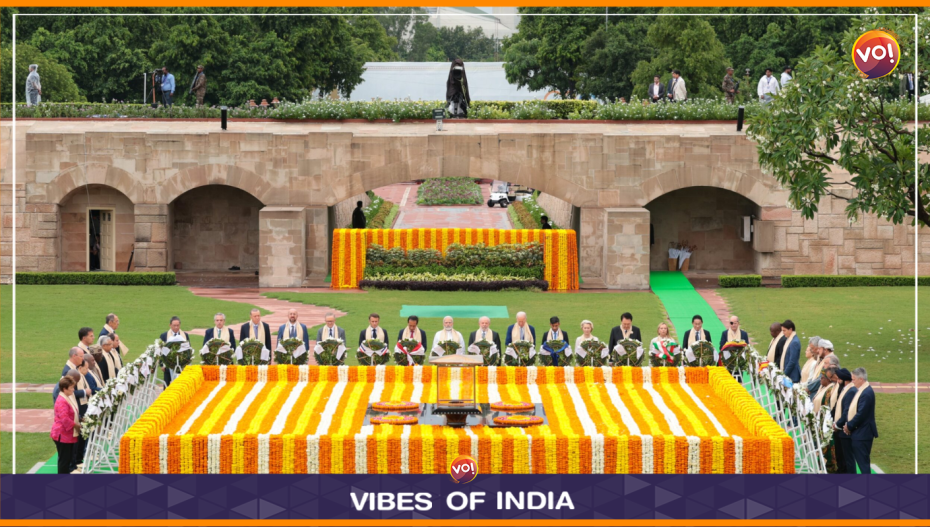G20 leaders, including US President Joe Biden, UK Prime Minister Rishi Sunak and UN Secretary-General António Guterres, paid homage to Mahatma Gandhi at his memorial site in Rajghat on Sunday. Prime Minister Narendra Modi welcomed the dignitaries to the rain-soaked Rajghat.

Modi extended his greeting by presenting the leaders with an ‘angvastram’ featuring an image of Gandhi’s Sabarmati Ashram in Gujarat. This ashram served as Gandhi’s residence from 1917 to 1930 and played a pivotal role in India’s struggle for independence.

During their visit, Prime Minister Modi took the opportunity to explain the historical significance of the ashram to the visiting leaders. The G20 dignitaries paid their respects to Gandhi by placing wreaths at his samadhi. While some leaders, including Modi and Sunak, walked barefoot, others donned white footwear provided to visitors at Rajghat.

Prime Minister Modi later expressed his thoughts in a post, emphasising the importance of paying homage to Gandhi at the iconic Rajghat. He noted that Gandhi remains a symbol of peace, service, compassion and non-violence, guiding diverse nations toward a harmonious, inclusive and prosperous global future.


Notable figures such as United Kingdom Prime Minister Rishi Sunak, Canadian Prime Minister Justin Trudeau, President of the Union of Comoros and Chairperson of the African Union (AU) Azali Assoumani, Nigerian President Bola Ahmed Tinubu, Spain’s Vice-President Nadia Calvino and Minister of Economy of the United Mexican States Raquel Buenrostro Sánchez also paid their respects to Mahatma Gandhi and laid wreaths.



Day 2 of the G20 summit commenced with the leaders visiting Delhi’s RajGhat to lay wreaths at the Samadhi of the father of the nation, Mahatma Gandhi. A musical tribute featuring Gandhi’s favourite hymns was performed during the wreath-laying ceremony.
Following their visit to Rajghat, the leaders proceeded to the Bharat Mandapam for a tree-planting ceremony at the South Plaza. Subsequently, the third session of the G20 summit, titled ‘One Future,’ took place at Bharat Mandapam. Additionally, a G20 exhibition for the spouses of world leaders was scheduled for the second day of the summit.

On September 9, the Delhi Declaration was adopted. This declaration called on nations to uphold international law, including territorial integrity and international humanitarian law, as well as the multilateral system that preserves peace and stability. Notably, all 83 paragraphs of the declaration were unanimously approved, with the consensus of China and Russia, and, notably, no footnotes or Chair’s Summary were included for the first time in the declaration’s history.
Also Read: Prez Droupadi Murmu To Address Gujarat Assembly Session, To Inaugurate NeVA Project On September 13













